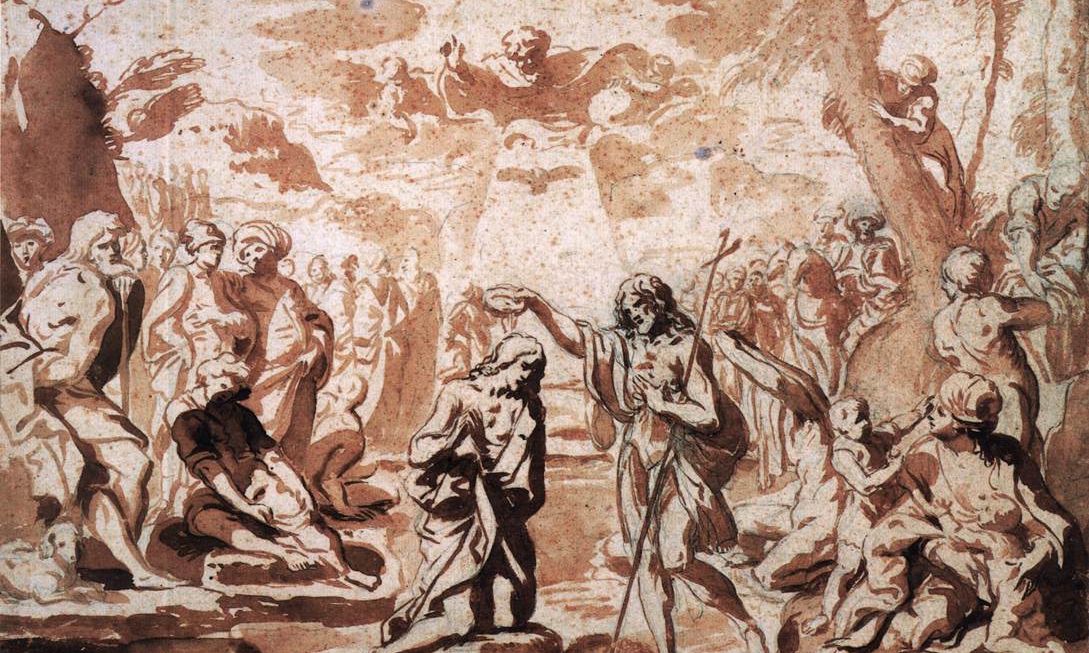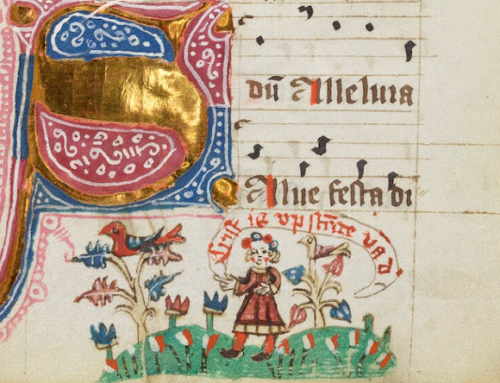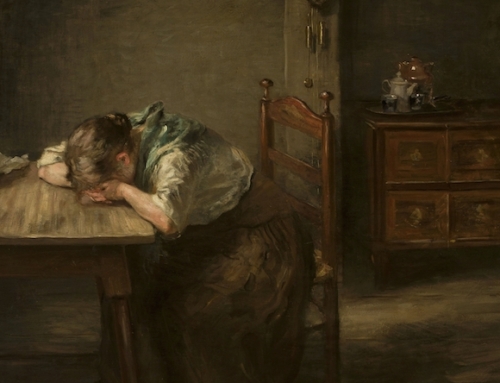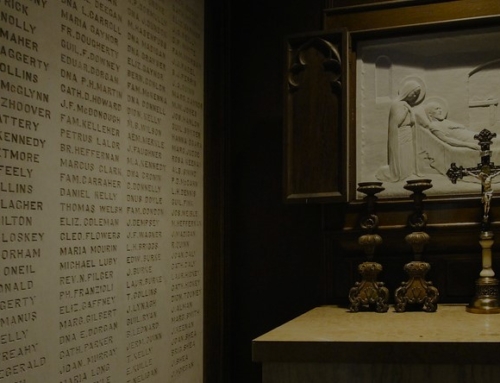Editor’s note: This is the fifth post in our newest series, reflecting on the Hillbilly Thomists’ recent, self-titled album. The series will run each Tuesday and Thursday throughout the Easter season. Read the whole series here. This post concerns the song “Poor Wayfaring Stranger,” which you can listen to here.
Haunting harmonies, a walking rhythm, and instrumental layering build and coalesce, evoking in sound what the lyrics portray in meaning—pilgrimage. “I Am a Poor Wayfaring Stranger” speaks of man’s journeying on this earth. Yet, from what and to what does man go?
From the moment Adam and Eve left the flickering glow of the angel’s flaming sword, man’s footsteps upon the dusty wilderness—as Divine Providence would have it—have been oriented to a return. Yet, this return requires passing through the looming, dark portal of death. As our parents bit into the flesh of the apple, corruption seeped into their own flesh. We too, coming from that same flesh, have to taste the bitterness of that apple. We journeyed through life into death.
The song’s line “I’m just going over Jordan” evokes this death. In one respect, the line refers to Joshua, that successor of Moses who led the dusty feet of the Israelites across the dry bed of the river into the long-desired promised land flowing with milk and honey. Yet, in a deeper sense, the line refers to the watery immersion of Christ in the Jordan (in Hebrew, the word Jordan means to flow down or to descend). Our crossing is not dry and dusty. Our crossing is a watery plunge, a sign of dying and rising, a baptism.
The waters of the Jordan parted for Joshua, and the Israelites passed safely from one bank to the other. Something more happened with Christ. It wasn’t the waters of the river that parted; it was the heavens. The crossing wasn’t horizontal, moving from earth to earth. Rather, Christ’s crossing was transcendental, moving from life to death, and into unending life. We journey through death into eternal life.
As we walk toward that dark portal of death, the baptized walk with Christ. “We were buried therefore with him by baptism into death, so that as Christ was raised from the dead by the glory of the Father, we too might walk in newness of life” (Rm 6:4). In Baptism, we are changed at the deepest metaphysical center of our being, we continue to walk in newness and with hope. We are on the way as wayfarers.
The song continues saying, “I’m just going over home.” This is a clear allusion to heaven, a connection more evident in the earlier versions found in Bever’s The Christian Songster (1858) and Taylor’s Revival Hymns & Plantation Melodies (1882). As pilgrims, we journey not just to death, but we pass on to more. “Here we have no lasting city, but we seek the city which is to come” (Heb 13:14). Even the erudite pope-theologian Benedict XVI described his own journey as “a pilgrimage towards home.” All this imagery of city, pilgrimage, and home are helpful descriptions of moving from one place to another. Yet, the deepest and truest sense of our journeying is not about designation of place. Our journeying is about fulfillment, perfection, life, and the all-consuming vision of the beloved, radiant face of God.
Upon rising from the waters of baptism, we follow Christ, who is “the way” (Jn 14:6). This following requires renewal, sacrifice, and metanoia. St. Paul exhorts us to put off the old man and put on the new man, even calling for our minds to be renewed in Christ (Eph 4:22–24). To put off the old man is a command to leave behind the sin and the corruption which came from Adam and Eve. To put on the new man is to “put on the Lord Jesus Christ” (Rom 13:14). To be renewed in the spirit of the mind is to “have the mind of Christ” (1 Cor 2:16).
Therefore, we are poor because we need all from Christ. We are wayfarers because we are journeying from death to life in Christ. We are strangers because we have died to this world and seek those things above. “For you have died, and your life is hid with Christ in God” (Col 3:3). When our journey—that is, our perfection in the Son—is complete, we will see our Father. “No one comes to the Father, but by me” (Jn 14:6).
✠
Image: Elisabetta Sirani, Study for the Baptism of Christ







